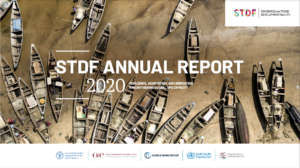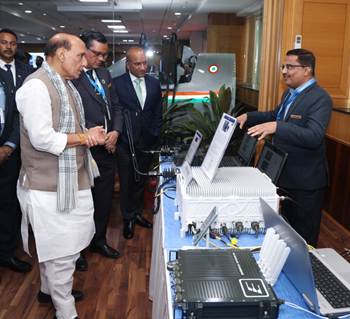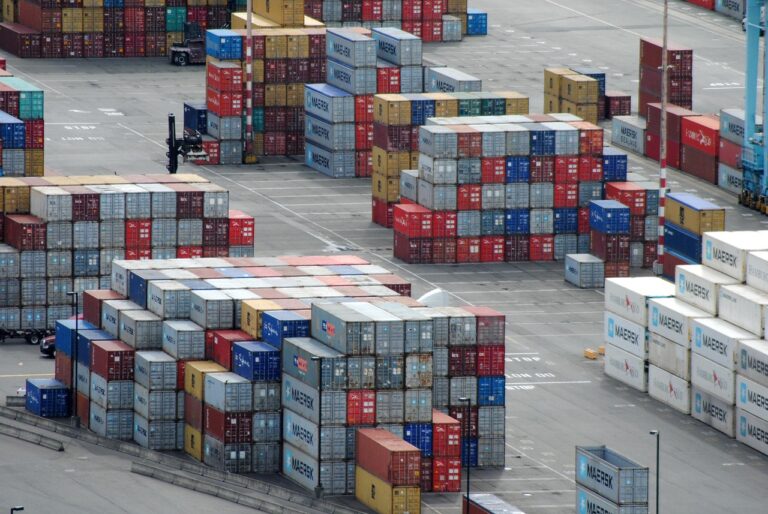
STDF Annual Report highlights efforts to boost sanitary and phytosanitary capacity despite pandemic challenges
Geneva: 2020 will be remembered as a year of adaptation and resilience. The COVID-19 pandemic had an immense impact on our health systems and caused enormous disruption to the global economy. Governments took measures to contain the spread of the virus, including travel restrictions, lockdowns, social distancing, and other safety protocols. Production and trade in agri-food products was scaled back, resulting in incalculable economic losses around the world that continue to be felt today.

The latest annual report from the Standards and Trade Development Facility (STDF), launched on August 2, 2021 highlights the continued efforts by developing and least developed countries to strengthening their food safety, animal and plant health capacity despite the challenges posed by the COVID-19 pandemic.
The report provides snapshots of STDF-supported projects, such as pesticide residue mitigation in Asia during COVID-19; piloting new models for food safety standards in West Africa and Central America; harmonizing regulations and integrating pesticide strategies in Southern Africa; improving developing country access to the global “ePhyto” electronic phytosanitary certificates exchange; and modernizing veterinary services through the “eVet” electronic veterinary certification programme.
Country-specific projects highlighted in the report include enhancing trade for cocoa farmers in Papua New Guinea; strengthening Zambia’s phytosanitary capacity for plant exports; improving sanitary and phytosanitary (SPS) capacity in the Penja pepper value chain in Cameroon; streamlining inspection, control, and surveillance of food of animal origin in Costa Rica; and improving the safety of smoked fish in Mali.
Established by the Food and Agriculture Organization of the United Nations (FAO), the World Bank Group, the World Health Organization (WHO), the World Organisation for Animal Health (OIE) and the WTO, the STDF is financed by voluntary contributions from donors. The WTO houses the STDF Secretariat and manages the STDF Trust Fund.
The COVID-19 pandemic caused disruptions to the implementation and delivery of STDF’s projects and Project Preparation grants (PPGs) in several ways. While individual projects have had to manage diverse risks in the past, from natural disasters to political strife, COVID-19 was exceptional in that it affected all STDF’s project operations simultaneously. In addition to the impact on project delivery, the pandemic also caused wide-ranging challenges to the overall context in which STDF projects operate in countries and regions, provoking substantial shocks to agricultural production, distribution and trade, as well as SPS management functions such as inspection and surveillance.
The COVID-19 pandemic had a massive impact on health systems and caused enormous disruption to the global economy, the report notes. Governments took measures to contain the spread of the virus, including travel restrictions, lockdowns, social distancing, and other safety protocols. Production and trade in agri-food products was scaled back, resulting in huge economic losses around the world that continue to be felt today.
Despite the challenges posed by the pandemic, the STDF adapted quickly across all its workstreams and kept delivering strong results in 2020, making efforts to understand the new realities on the ground and continuing to provide vital assistance to strengthen food safety, animal and plant health systems in developing countries.
Digital opportunities and solutions to support economic recovery and longer-term resilience against future shocks featured strongly in STDF’s project work. Strengthening SPS capacity, as a global public good, is critical for developing countries to recover from shocks, such as COVID-19, and to become more resilient against future outbreaks of pests and diseases.
“Trade is about people – about making their lives better,” WTO Director-General Ngozi Okonjo-Iweala said in a video to mark the launch of the report. “The Standards and Trade Development Facility works to enable small-scale farmers to meet international health and safety standards for their products. This opens the door to new markets and means higher incomes and more jobs and economic opportunities, particularly for women. It means safer food, lower trade times and costs, and greater capacity to protect plant and animal health capacity.
– global bihari bureau





